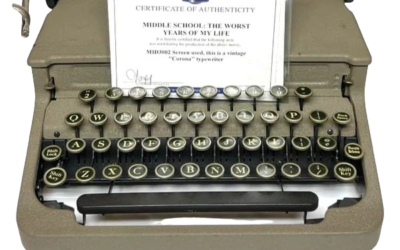This week, redefine how you measure success in your writing life. Pick one non-traditional metric—maybe improved dialogue or deeper connection with readers—and track your progress over the next month. Notice how this shift in perspective changes both your writing process and your sense of accomplishment. What will you measure differently today?
Beyond the Pizza Price: Valuing the Journey of Your Words
Reevaluate how you price—or perceive the price of—your own creative offerings. If you’ve been defaulting to the cost of a “large pizza,” pause. Consider the hours, passion, and craft poured into your work. Experiment with a pricing strategy that honors your efforts. Will you dare to value your writing at more than a quick meal?
Uncovering Your Unique Story Proposition (USP)
A “Unique Story Proposition” refers to the core essence that distinguishes your work from other authors in your genre. It could be your voice, the angle you take on familiar topics, or the way your own life experiences shape your storytelling.
Standing Out in a Sea of Voices (Without Losing Yourself)
Choose one step—whether it’s clarifying your core values or seeking supportive allies—to help you stand out without losing yourself. How will you find the balance between “you” and “them”?
Finding the Right “Home” for Your Writing Identity
Clarify Your Core Identity: What do you want readers to think of when they see your name?
Story-Driven Causes: Brewing Your Writing with Purpose
hen we talk about “brewing your writing with purpose,” we’re exploring the concept of tying a bigger mission or social cause into your creative output. It might be as subtle as weaving themes of environmental stewardship into a novel set in a forest, or as direct as donating a portion of your book proceeds to a literacy program.
Balancing Truth and Imagination in Your Writing
Writers often wrestle with a familiar question: How true does this story need to be? Some argue that every detail should align perfectly with reality to maintain credibility. Others believe storytelling is about emotional truth, so bending facts for the sake of a compelling narrative is fair game.
Making the Ordinary Extraordinary in Your Writing
he “selling water” metaphor stands for taking a simple idea—maybe an everyday observation or a universal theme—and showcasing it to readers in a way that feels immediately relevant.
One Sweep vs. Small Tweaks: Which Editing Path Suits You?
At its core, this dilemma boils down to how you tackle revisions. The “one sweep” approach suggests you can solve every structural flaw, remove extraneous characters, and polish dialogue in one heroic editing pass. The “small tweaks” method encourages you to edit in layers, focusing on one aspect of craft at a time—like pacing—before moving on to another—like character development.
Why Every Writer Needs a “How-To” Moment
Your next move is simple: pick one writing challenge you’ve conquered—or are in the process of conquering—and craft a step-by-step solution others can follow. Then share it. Not only will you help fellow writers, but you’ll solidify your own methods and stand out as a voice of experience. What how-to guide will you create today?
The Power of Real-Time Connection in Your Writing
No matter how you incorporate a “live” element—whether through serialized posts, candid updates, or subtle immediacy in your prose—the result is a deeper connection.
The Endless Possibilities of Your Grand Opening
Imagine the first chapter of your novel as an invitation to a grand party—you don’t have to reveal everything at once, but you do want to tease the best parts of what’s to come. You want your readers to stay, mingle, and grow curious about the other rooms in the house.
The Accidental Spark
The more often you write, the more “accidents” you’ll experience.
When the Rules Shift Under Your Pen
Writers of every stripe face these evolving rules. Novelists who once relied on brick-and-mortar bookstores might scramble to master online marketing. Essayists might see traditional literary magazines fold and get replaced by digital publications.
Harnessing an Overflowing Imagination in a Limited World
Here’s a secret: constraints don’t have to curb your imagination. They can shape it in remarkable ways. When you face limitations—like a word count restriction or limited tech know-how—you’re forced to get creative.
Creating Ripples with Your Writing
It’s easy to believe your words won’t matter—especially with so many voices shouting for attention. But here’s the truth: Your writing can make a difference, even if it’s one reader at a time. When you write with authenticity and purpose, you create ripples. Maybe you...
A Call for Improvement in Your Writing Practice
If you’re not sure where to start, pick a specific element of craft to level up. Maybe you’ll focus on creating more vivid sensory details, or building tension more effectively. Then, measure your progress by reviewing your older pieces. Can you see evidence of improvement? Celebrate those mini-victories, and then set a new goal.
The Right Lens for Your Words
The right lens helps you see potential, not just flaws. And once you see potential, you can shape it into something remarkable.
Our first Asengana giveaway – win a 1940 Corona Flat Top typewriter
Our first Asengana giveaway – 1940 Corona Flat Top typewriter – is over. We are contacting now the winner and will post updates once is confirmed.
Un auteur, une IA et une machine à écrire entrent dans un bar…
Prenez la machine à écrire Corona Flat Top des années 1940 – ce n’est pas seulement une relique, mais un symbole de l’âge d’or de la narration.
Asking AI to wear an editor’s hat – Claude vs. ChatGPT4
Claude vs. ChatGPT. Every feedback you can get it will help you in your writing journey. The “AI” will not write in your place, but it will definitely help along the way.
Le stylo est plus puissant : le pouvoir d’écrire tous les jours
L’écriture tous les jours est un outil puissant qui peut aider les écrivains à atteindre leurs objectifs. Que vous soyez un écrivain en devenir ou un auteur établi, faire de l’écriture une habitude quotidienne est une étape essentielle pour devenir un écrivain réussi et productif. Alors, consacrez un peu de temps chaque jour à écrire et ressentez les bénéfices par vous-même.























